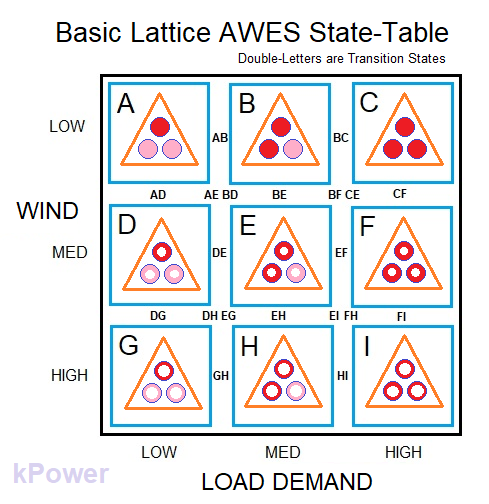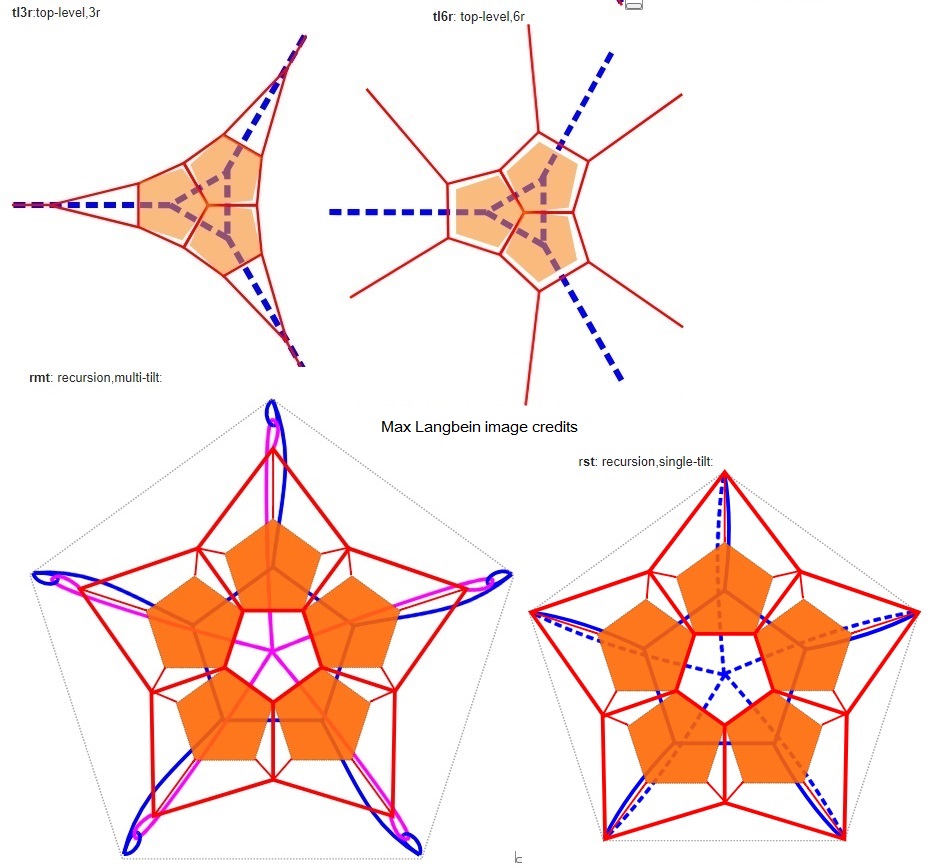State-Space of AWES Plants
- Sail Change
- v
- v
Send
AWE notes and topic replies to editor@upperwindpower.com
3x3x3... Wind/Load-Demand/Quiver/... State-Space of AWES Plants
Toward a Simplified Optimal State-Space of AWES Kite Farms or Lattices

NOTES:
Discrete topological surgeries- hot-swaps, kite-kills,
Continuous topological adjustments- tunings; AoA (depower), furling (depower), altitude-change (capacitance, depower),
WIND and LOAD (demand) vary continuously, and can saturate actuation response.
Forecasting reduces actuation response saturation,
Wind and Load Demand are the two basic external inputs to this simplified AWES State Machine model.
In this simplified model, there are three general values for each dimension, Low, Med, and High.
Kite Area, Kite (De)Power parameters both modulate Power-to-Wind-Velocity.
E state is ideal Most-probable Design WIND and LOAD.
A is light usable Wind with lowest Load.
I is highest Wind with highest Load.
C implies maximum number of light-air (low Wind) kites.
G implies a minimum number of heavy air (hi-Wind) kites.
B, D, E, F, H are intermediate integer-kite mixed-set states.
AB, BC, AD, AE, BE, BF, CE, CF, BD, DG, DE, EF, EG, DH, EH, EI, FI, FH, GH, HI Fractional Transition States
A=>B = AB
B=>A = BA
Alternative State Notation: A = S1, B = S2, ...
Simplified Quiver Model: 9 kites total. 3 low wind, 3 med wind, 3 hi wind
Suite-Model: Continuous Furling
Furling Model: Unfurled, Half-Furled, Quarter-Furled, Fully-Furled
Within each state are continuous tuning parameters, like bulk altitude and unit AoA.
Transition between States is stepwise, with fractional intermediate states.
Many Fuzzy and/or Quasi-Crystal States.
Quiver Kite Flight Envelopes should overlap enough such that quiver gaps are small.
Special States:
- ZERO State- Landed in ZERO WIND
- Negative State- Reverse-Pumping
- Gliding-Down State- can generate some power in principle. Some Storage possible.
- Transitions cause brief over- or under- generation states, as a unit-kite is missing, or superfluous.
Kite-Killed => Reset Decision
Altitude-States- Climb, Descent, High, Med, Low, Surface
Airspace Intrusion- Default Full-Kill (sense and avoid criteria), future cost-benefit reassessment with scaling.
| General State-Transition Table | |||
| LOAD DEMAND |
|||
| WIND | Low |
Med |
High |
| Low |
A |
B |
C |
| Med |
D |
E |
F |
| High |
G |
H |
I |
